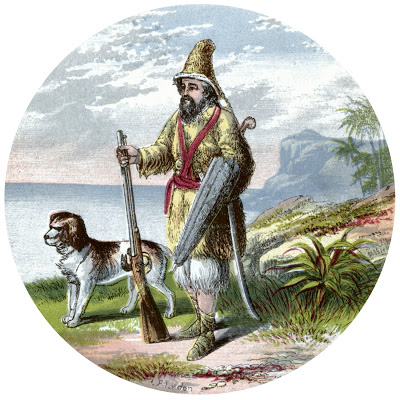
The Shortest Way With Defoe – Robinson Crusoe, Deism, and the Novel
Michael B. Prince, University of Virginia Press, 2020, 328 pages, £26
Daniel Defoe’s 1722 novel Journal of the Plague Year has been much read recently, for obvious reasons. Cognoscenti have always read Roxana and Tour Thro’ the Whole Island of Great Britain, while his scabrous The True-Born Englishman is sometimes cited against ‘racism’. But of course we remember him chiefly for 1719’s Robinson Crusoe, immediately popular with an increasingly literate public for its new, realistic style, and because its hero was an idealisation of English resourcefulness abroad when the recently-United Kingdom sought common purpose and overseas expansion. Boston University‘s Michael Prince proves there is yet more to this formative work.
Defoe was born Daniel Foe in 1660 (the year is uncertain), into a non-conformist London family. He became at different times one of the Duke of Monmouth’s rebels, a soldier for William III, a Whig and a Tory journalist, a brilliant satirist and a government spy. He was called “a Scandalous Pen, a foul-Mouthed Mongrel”, pilloried for seditious libel by one government, and convicted of treasonable publication by another. He wrote on anything from the supernatural to trade, poetry to topography, morals to foreign policy, publishing over 500 works during his lifetime. Privately, he was plagued by bankruptcy, debt, and the deaths of six children. This piece of literary sleuthing shows how Defoe used Crusoe to perpetuate a long-running political-private grudge, and convey a then dangerous Deism.
Defoe feuded with gusto, but among his bitterest enemies were High Anglicans and Tories angered by his 1702 hoax pamphlet, The Shortest Way with the Dissenters, which took High Anglican arguments to ludicrous extremes. In Crusoe’s rarely-read second sequel, 1720’s Serious Reflections (following 1719’s Farther Adventures), Defoe aims at one of these, clergyman Charles Leslie, although by then his old enemy had long been in exile with the Pretender. Prince threads expertly through a fascinating period when English journalism was beginning to bud; over 300 periodicals were launched between 1700 and 1720. He traces Defoe’s journey from experimental writer and innovative editor to novelist of measured verisimilitude. He squirms to see what he calls the “cosmopolitan” Crusoe of the earlier books becoming “an embarrassment…a clichéd colonialist, religious fanatic and racist” in Serious Reflections – although of course his Crusoe has long been dismissed in similar terms.
There can be no ‘short way’ into so busy and diverse an author, and Prince can be opaque, but any stylistic shortcomings seem unimportant when seen against the author’s scholarship. Defoe introduced Robinson Crusoe by saying his tale was “told with modesty, with seriousness, and with a religious application of events…to the instruction of others”. Something similar could be said of Prince’s contribution to a better understanding of a fascinating and important writer, and the world-changing culture of his island nation.
This article first appeared in Chronicles, and is reproduced with permission
